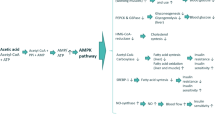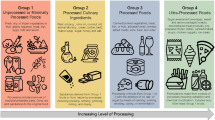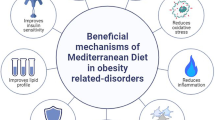Abstract
Increasing prevalence of obesity and metabolic syndrome warrants identification of potential therapeutic options for intervention. This study tested commercially available Virgin Coconut Oil and Coconut Nourish, as coconuts are rich sources of lauric and myristic acids. Male Wistar rats were fed either corn starch diet (C); high-carbohydrate, high-fat diet (H); high-carbohydrate, high-virgin coconut oil diet (HV); or high-carbohydrate, high-coconut Nourish diet (HN) for 16 weeks. Metabolic, liver, and cardiovascular health parameters were measured during and at the end of the study. Virgin coconut oil lowered body weight (C 386±8g, H 516±13g, HV 459±10g), blood glucose concentrations (C 4.2±0.1 mmol/L, H 5.4±0.2 mmol/L, HV 4.6±0.2 mmol/L), systolic blood pressure (C 127±5mmHg, H 149±4mmHg, HV 133±3mmHg,) and diastolic stiffness (C 25.0±1.7, H 31.4±1.2, HV 25.2±2.3,) with improved structure and function of the heart and liver. Coconut Nourish increased total body lean mass (C 255±10g, H 270±16g, HN 303±15g) and lowered plasma total cholesterol concentrations (C 1.6±0.2 mmol/L, H 1.7±0.1 mmol/L, HN 1.0±0.0 mmol/L), systolic blood pressure (C 127±5mmHg, H 149±4mmHg, HN 130±3mmHg) and diastolic stiffness (C 25.0±1.7, H 31.4±1.2, HN 26.5±1.0), improved structure and function of the heart and liver but increased plasma concentrations of triglycerides (C 0.3±0.1 mmol/L, H 1.1±0.4 mmol/L, HN 1.8±0.2 mmol/L) and non-esterified fatty acids (C 1.2±0.3 mmol/L, H 3.3±0.8 mmol/L, HN 5.6±0.4 mmol/L). Thus, the fiber and protein in coconut Nourish and the medium-chain saturated fatty acids in virgin coconut oil may improve cardiovascular and liver complications in obesity.

Similar content being viewed by others
References
O'Neill S, O'Driscoll L (2015) Metabolic syndrome: a closer look at the growing epidemic and its associated pathologies. Obes Rev 16:1–12
Hammad S, Pu S, Jones PJ (2016) Current evidence supporting the link between dietary fatty acids and cardiovascular disease. Lipids 51:507–517
Poudyal H, Brown L (2015) Should the pharmacological actions of dietary fatty acids in cardiometabolic disorders be classified based on biological or chemical function? Prog Lipid Res 59:172–200
DebMandal M, Mandal S (2011) Coconut (Cocos nucifera L.: Arecaceae): in health promotion and disease prevention. Asian Pac J Trop Med 4:241–247
St-Onge M-P, Jones PJH (2002) Physiological effects of medium-chain triglycerides: potential agents in the prevention of obesity. J Nutr 132:329–332
Katragadda HR, Fullana A, Sidhu S, Carbonell-Barrachina ÁA (2010) Emissions of volatile aldehydes from heated cooking oils. Food Chem 120:59–65
Lima EB, Sousa CN, Meneses LN, Ximenes NC, Santos Junior MA, Vasconcelos GS et al (2015) Cocos nucifera (L.) (Arecaceae): a phytochemical and pharmacological review. Braz J Med Biol Res 48:953–964
Akinpelu DA, Alayande KA, Aiyegoro OA, Akinpelu OF, Okoh AI (2015) Probable mechanisms of biocidal action of Cocos nucifera husk extract and fractions on bacteria isolates. BMC Complement Altern Med 15:116
Lima EB, de Sousa CN, Vasconcelos GS, Meneses LN, E Silva Pereira YF, Ximenes NC et al (2016) Antidepressant, antioxidant and neurotrophic properties of the standardized extract of Cocos nucifera husk fiber in mice. J Nat Med 70:510–521
Sekar S, Shafie SR, Prasadam I, Crawford R, Panchal SK, Brown L et al (2017) Saturated fatty acids induce development of both metabolic syndrome and osteoarthritis in rats. Sci Rep 7:46457
Eyres L, Eyres MF, Chisholm A, Brown RC (2016) Coconut oil consumption and cardiovascular risk factors in humans. Nutr Rev 74:267–280
Rippe JM, Angelopoulos TJ (2013) Sucrose, high-fructose corn syrup, and fructose, their metabolism and potential health effects: what do we really know? Adv Nutr 4:236–245
Panchal SK, Poudyal H, Iyer A, Nazer R, Alam MA, Diwan V et al (2011) High-carbohydrate, high-fat diet-induced metabolic syndrome and cardiovascular remodeling in rats. J Cardiovasc Pharmacol 57:611–624
Poudyal H, Panchal SK, Waanders J, Ward L, Brown L (2012) Lipid redistribution by a-linolenic acid-rich chia seed inhibits stearoyl-CoA desaturase-1 and induces cardiac and hepatic protection in diet-induced obese rats. J Nutr Biochem 23:153–162
Brown L, Poudyal H, Panchal SK (2015) Functional foods as potential therapeutic options for metabolic syndrome. Obes Rev 16:914–941
Marina AM, Che Man YB, Amin I (2009) Virgin coconut oil: emerging functional food oil. Trends Food Sci Technol 20:481–487
Liau KM, Lee YY, Chen CK, Rasool AHG (2011) An open-label pilot study to assess the efficacy and safety of virgin coconut oil in reducing visceral adiposity. ISRN Pharmacol 2011:949686
Delany JP, Windhauser MM, Champagne CM, Bray GA (2000) Differential oxidation of individual dietary fatty acids in humans. Am J Clin Nutr 72:905–911
Lekshmi Sheela D, Nazeem PA, Narayanankutty A, Manalil JJ, Raghavamenon AC (2016) In silico and wet lab studies reveal the cholesterol lowering efficacy of lauric acid, a medium chain fat of coconut oil. Plant Foods Hum Nutr 71:410–415
Narayanankutty A, Palliyil DM, Kuruvilla K, Raghavamenon AC (2017) Virgin coconut oil reverses hepatic steatosis by restoring redox homeostasis and lipid metabolism in male Wistar rats. J Sci Food Agric. https://doi.org/10.1002/jsfa.8650
Famurewa AC, Ekeleme-Egedigwe CA, Nwali SC, Agbo NN, Obi JN, Ezechukwu GC (2017) Dietary supplementation with virgin coconut oil improves lipid profile and hepatic antioxidant status and has potential benefits on cardiovascular risk indices in normal rats. J Diet Suppl. https://doi.org/10.1080/19390211.2017.1346031
Shinjo S, Jiang S, Nameta M, Suzuki T, Kanai M, Nomura Y et al (2017) Disruption of the mitochondria-associated ER membrane (MAM) plays a central role in palmitic acid–induced insulin resistance. Exp Cell Res 359:86–93
Hirabara SM, Curi R, Maechler P (2010) Saturated fatty acid-induced insulin resistance is associated with mitochondrial dysfunction in skeletal muscle cells. J Cell Physiol 222:187–194
Ezeh U, Pall M, Mathur R, Azziz R (2014) Association of fat to lean mass ratio with metabolic dysfunction in women with polycystic ovary syndrome. Hum Reprod 29:1508–1517
Blouet C, Mariotti F, Azzout-Marniche D, Bos C, Mathé V, Tomé D et al (2006) The reduced energy intake of rats fed a high-protein low-carbohydrate diet explains the lower fat deposition, but macronutrient substitution accounts for the improved glycemic control. J Nutr 136:1849–1854
Alves NF, Porpino SK, Monteiro MM, Gomes ER, Braga VA (2015) Coconut oil supplementation and physical exercise improves baroreflex sensitivity and oxidative stress in hypertensive rats. Appl Physiol Nutr Metab 40:393–400
Kamisah Y, Periyah V, Lee KT, Noor-Izwan N, Nurul-Hamizah A, Nurul-Iman BS et al (2015) Cardioprotective effect of virgin coconut oil in heated palm oil diet-induced hypertensive rats. Pharm Biol 53:1243–1249
Tran LT, Yuen VG, Mcneill JH (2009) The fructose-fed rat: a review on the mechanisms of fructose-induced insulin resistance and hypertension. Mol Cell Biochem 332:145–159
Klein AV, Kiat H (2015) The mechanisms underlying fructose-induced hypertension: a review. J Hypertens 33:912–920
Denke MA, Grundy SM (1992) Comparison of effects of lauric acid and palmitic acid on plasma lipids and lipoproteins. Am J Clin Nutr 56:895–898
Zock PL, De Vries JH, Katan MB (1994) Impact of myristic acid versus palmitic acid on serum lipid and lipoprotein levels in healthy women and men. Arterioscler Thromb 14:567–575
Lawrence GD (2013) Dietary fats and health: dietary recommendations in the context of scientific evidence. Adv Nutr 4:294–302
Bagger M, Andersen O, Nielsen JB, Ryttig KR (1996) Dietary fibres reduce blood pressure, serum total cholesterol and platelet aggregation in rats. Br J Nutr 75:483–493
Dibello JR, Mcgarvey ST, Kraft P, Goldberg R, Campos H, Quested C et al (2009) Dietary patterns are associated with metabolic syndrome in adult samoans. J Nutr 139:1933–1943
Lindeberg S, Eliasson M, Lindahl B, Ahrén B (1999) Low serum insulin in traditional pacific islanders-the Kitava study. Metabolism 48:1216–1219
Acknowledgements
This study was funded by Enterprise Connect and Nature Pacific Pty Ltd. as part of the Researcher in Business program. Virgin coconut oil and Banaban Nourish were provided by Nature Pacific Pty Ltd., Gold Coast, QLD, Australia as part of this program. We thank Mr. Brian Bynon, School of Veterinary Sciences, The University of Queensland Gatton, for plasma biochemical analyses.
Author information
Authors and Affiliations
Contributions
S.K.P. and L.B. designed the research protocol and interpreted the results; S.K.P. and S.C. conducted the animal experiments and analyzed the data; S.K.P., S.C. and L.B. wrote the manuscript; and S.K.P. had primary responsibility for final content. All authors read and approved the final manuscript.
Corresponding author
Ethics declarations
Conflict of Interest
The authors declare that they have no conflict of interest.
Statement on the Welfare of Animals
All experimental protocols were approved by the Animal Ethics Committee of the University of Southern Queensland under the guidelines of the National Health and Medical Research Council of Australia. The approval number for this study was 13REA008. This article does not contain any studies with human participants performed by any of the authors.
Rights and permissions
About this article
Cite this article
Panchal, S.K., Carnahan, S. & Brown, L. Coconut Products Improve Signs of Diet-Induced Metabolic Syndrome in Rats. Plant Foods Hum Nutr 72, 418–424 (2017). https://doi.org/10.1007/s11130-017-0643-0
Published:
Issue Date:
DOI: https://doi.org/10.1007/s11130-017-0643-0




